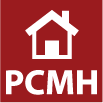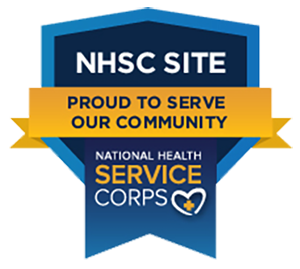Advance Care Planning April 2020
Making your Wishes Known.
As we age, it is important to think about the kind of care we would or would not want at the end of our life. While this is always important, it becomes even more so during a pandemic. People responding to you, be it your primary care provider, a family member or friend, a paramedic, an emergency room or intensive care unit physician all want to know—what kind of care do you want?
We know that COVID-19 can cause life-threatening illness relatively quickly, and that while most people have mild to moderate (not requiring hospitalization) symptoms, many are sick enough to be hospitalized and, possibly need to have the extra support (like a breathing machine or ventilator) in the ICU. Particularly those with health conditions like diabetes or hypertension who are over age 65. As age increases, risk goes up. Many people who are severely ill on a ventilator require prolonged hospitalization under heavy sedation, and if they are able to come off of the ventilator may have a long process of rehabilitation ahead of them. Many people who end up on a ventilator are unable to come off of it, and thus die.
Much has been reported in the news about this very challenging situation, and it is the default mode of our medical system to do everything we can to support someone to survive. However, that is not always what someone would choose, if offered the choice.
We don’t know if COVID-19 will make its way through West Marin as it has other communities. Now is a wonderful time to have these conversations with loved ones and primary care providers: how much care would you want? In what setting? This is a deeply personal consideration, and there is no “right” answer. For many people, myself included, it makes sense to opt in to the full extent of life supportive treatment. For many, particularly if it is unlikely that this care would be unsuccessful, however you define it, it may make more sense to opt for care in the hospital but stop short of being put into a medically-induced coma on a ventilator. For some, it makes most sense to focus on comfort care, or “palliation” of symptoms like feeling short of breath, at home, and to ensure that this is made possible with the support of medicines that alleviate suffering.
How do you make these wishes known? Start with a conversation. Then fill out an Advance Medical Directive. You can obtain one from your primary care provider, or online here (available in English and Spanish): https://prepareforyourcare.org/advance-directive-state/ca.
You can specify on the form if your wishes pertain only to illness due to COVID-19. I will be facilitating conversations about this and answering questions for community members on a weekly Zoom call Wednesday evenings from 6:30 to 7:30 (RSVP to Sophie at sophie@naturainstitute.org for call details). We will also talk about another form you may have heard about, the “POLST” form. Now is a great time to make your wishes known.
Coronavirus and Community Care March 2020
Here we are, together, in this unprecedented moment in human history. A time marked by dissonant juxtapositions: the breathtakingly beautiful spring—with the bluest and clearest of skies, dazzling greens of trees leafing out, brilliant beauty of wildflowers beginning their display, and the songs of birds ringing out through the quiet—set against the backdrop of the Covid-19 nightmare playing out in communities across our country. A time of great disparity in experience of sheltering in place—some of us continue our essential work or can work from home, gratefully experiencing a slowing of society’s dizzying pace, while so many others are on the brink of financial devastation. A time of trepidatious anticipation of what could very possibly ripple through our communities in West Marin, while daring to feel curious about whether we are “flattening the curve.” A time of heightened appreciation that there are no guarantees in this life; each day of life is a gift to be cherished, and any one of us could die tomorrow.
How do we embrace life in this rarified moment? How can we see self-care and staying at home to be a radical act of community care of the utmost importance? How can we ensure, now and into the future, that we are resilient in navigating chaos and disruption? How can the beautiful discipline of mindful, present moment awareness thwart the spread of this virus?
As the number of cases in Marin continues to climb and the coronavirus draws nearer to those we know and love locally, we must bring our most vigilant awareness to hand-washing and face-touching. This virus is not hardy—it is easily killed with soap and water—but it takes advantage of our human tendency to touch our face. A lot. It is very likely that much of the transmission occurring is through touching a surface with the virus on it, and then touching our face: putting our hand to our chin, rubbing our nose, our eyes. After touching a surface, as soon as possible wash your hands with soap and water, or use hand sanitizer (home recipes abound on the internet) and do your best to avoid touching your face at all times. Wash your hands with the loving attention that such a potentially life-saving act deserves. Notice the impulse to touch your face. Refrain.
Staying at home, diligently, or taking walks outside while consistently observing social distancing of at least 6 feet is one of the most important ways we can protect our community from this virus. If you feel your resolve weakening, think of the beloved people, both young and old, who could be put at risk. Minimize trips out in the world. When outside of the home, see every touched surface as potentially hazardous (and wash your hands after each touch). We have the power, collectively, to keep the spread of the virus slow enough so that our health care providers both in our community (myself included) and in our hospitals can keep up with the care that is needed. Please, please do your part.
I see deeply nourishing self-care as another radical way of protecting our community. As we support our immune system and increase our odds of having only mild to moderate symptoms, we reduce the strain on the healthcare system.
One of the most potent ways of supporting our immune system is to get eight hours of deep sleep each night. Our immune system is regulated by many hormones impacted by the sleep-wake cycles and our circadian rhythm. Immune system activation and strength of response to invaders like viruses are boosted during our sleep phase, as is healing. Studies have shown that people getting fewer than 6 hours of sleep at night have more significant and longer duration of viral symptoms when subjected to a cold virus. In this time of slowing down, align yourself with natural cycles of light and dark by minimizing light in the evening and limiting your exposure to screens after dark. Wake with the light of dawn, not the alarm, if possible. Aim for “winding down” and getting into bed by 10pm. These foundational practices will optimize the number and function of the immune cells in your body and give you better protection.
Stress and anger also suppress the immune system. Studies have shown that after one episode of anger, immune function was lowered for six hours! Other studies have shown that those in happy marriages subjected to the cold virus become less ill and recover faster than those in marriages in which there is a lot of arguing. Similarly, the chronic experience of stress from other sources also makes us more vulnerable to infection. Fortunately, mind-body practices like meditation, as well as mindful time in nature, have been found to improve our immune function and relax us. Under stressful circumstances, adopting a regular relaxation practice is good medicine.
We here in West Marin are so very fortunate to be surrounded by nature. As the possibility of Covid-19 spreading through West Marin comes closer, spending as much time outdoors in the fresh air and spectacular beauty will support our immune system in so many ways. Sunshine increases vitamin D levels (essential for immune function), trees release anti-inflammatory and anti-microbial phytochemicals. And there is this: during the 1918 influenza pandemic, people treated in “open air hospitals”, kept warm with layers of blankets and hot water bottles but otherwise outdoors, had as much as a 40% lower mortality rate than those treated indoors. Times and hospitals have changed, but this fact remains: fresh, cool, circulating air is good for our lungs and our immune systems. As we prepare ourselves for the possibility of someone in our household becoming sick, I am thinking not only of which room they could be isolated in; I am also thinking about how to make a comfortable, warm and cozy place for an ill person to be outdoors, at least for stretches during the day, away from others. Could you make such a place, should the need arise, outside of your home? Now is a great time to prepare.
Spring in Northern California abounds with other ways in which nature offers nourishment. Wild greens like miner’s lettuce are loaded with immune-essential vitamin C, especially when eaten fresh. Making a tea from the fresh new leaves on the abundant blackberry bushes supports the immune system and lowers our blood sugar (which also supports our immune system). Bitter greens like wild radish, young tender curly and yellow dock, and leaves of young milk thistle can all be sautéed, added to a soup, seasoned with immune boosting onions (so many wild ones out right now!) and garlic. Now is also a wonderful time to harvest stinging nettle and add it to your nourishing creations. Nature provides so many nourishing foods that are very supportive of our optimal health and immune function.
The way we nourish ourselves in this time of staying close to home, hunkered down is another radical act of care for self and community. Choosing foods that support, not suppress immune system is a radical act of social responsibility. Making extra soup and bringing it to your neighbor, supporting the beautiful efforts arising in our community to make sure everyone has access to good food, and reaching out to those who are vulnerable elders and offering to drop groceries off for them enhances our community’s resilience. Helping someone else (safely, with a six foot distance) supports your immune function, decreases stress levels, and improves mood.
This surreal moment of great beauty and great challenge invites each of us to reflect on what role we can play to be of service. It may be as simple as getting a good night’s sleep, taking good care, and exploring a relationship with the natural world.
Anna O’Malley, MD is an integrative family and community medicine physician with the Coastal Health Alliance. She also founded and directs the Natura Institute for Ecology and Medicine in the Commonweal Garden, and is uploading resources-from integrative medicine recommendations to immune boosting recipes and foraged nourishing greens-at www.naturainstitute.org.







